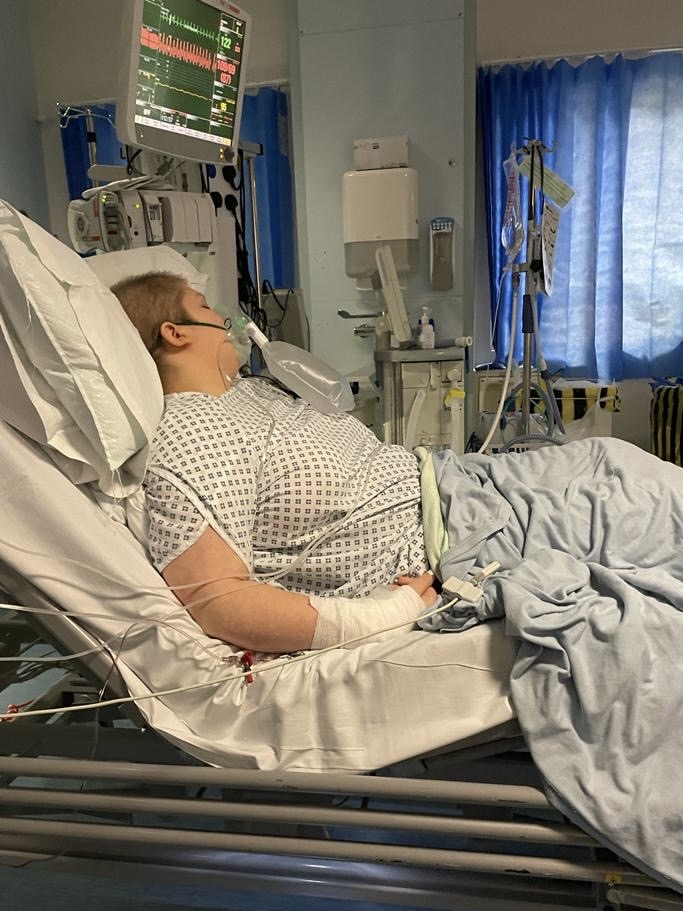It's fine to feel sadness, just as it is to feel joy
Kaleb
Kaleb was diagnosed with a pilocytic astrocytoma (a type of brain tumour) after experiencing a brain haemorrhage when he was 14.
He says getting psychological support has helped him process some difficult emotions arising from his diagnosis and treatment.
In 2015, I was on a school mountain-climbing trip to Morocco and felt extremely ill. I had intense nausea and vomiting but I attributed my sickness to food poisoning. However, these symptoms were caused by my then undiagnosed brain tumour. The tumour was haemorrhaging because of the low pressure produced by the altitude of the mountain.
I summited the mountain and made it to the airport, ready to go home at the end of the 7-day trip, but I collapsed on the way to the aeroplane. I went into a coma and was taken to the nearest hospital. My parents had to give permission, by phone, for me to have emergency brain surgery.
They flew over and joined me at the hospital in Marrakesh, a few hours later.
After some psychology sessions, I’ve been able to sit with and process my emotions more
I was in a coma for three days, one of which was my 15th birthday. I woke up very confused and didn’t recognise my mum and dad at first – although I managed to respond to the neurosurgeon in French! I was then medically evacuated, by plane, back to Birmingham. The shunt that drained blood from my brain blocked mid-flight, so I had to have an emergency neurosurgery in hospital once I landed. I also had a nine-hour biopsy and debulking surgery to remove the tumour.
When I woke up after the debulking surgery, I was able to enjoy a hospital-ward roast chicken, which, being a meat-lover in a vegetarian household, is the best food I’ve ever had.
It’s been hard for all three of us, but my mum and dad have been amazing throughout. After I was able to leave the neurosurgery ward for home, my dad took a year off work to become my full-time carer. My mum has been wonderful too. We’ve supported one another, which has been vital for all of us.
We spent the first year after I was diagnosed suppressing some of our difficult emotions, but after some psychology sessions, I’ve been able to sit with and process my emotions more. It has been really liberating. I think it’s fine to feel sadness, just as it is to feel joy – letting those emotions flow through and be felt really helps; they might be pleasant or unpleasant, but they’re not good or bad, just part of life.
I also had proton beam therapy, after my tumour started growing again. I found it quite disconcerting, walking into a room, with a huge machine, which was silent when active – so different from an MRI! I had a proton beam playlist to keep my going – with different tracks for each day of the week.
After my neuro-surgeries I had fatigue, so I was sleeping for about 16 hours a day and didn’t really have energy for anything in my waking hours. Long-term, some of the fatigue will continue, as well as some late effects to my endocrine function, so follow-up monitoring will be valuable for me.
I’m now at university, studying English language and literature. I am developing some of the analytical and communication skills, which my diagnosis has acutely highlighted the value of for me.
I’m really enjoying working with the Youth Advisory Group, part of Teenage Cancer Trust, to contribute to long-term strategy, marketing campaigns, and other aspects of the charity’s work.





